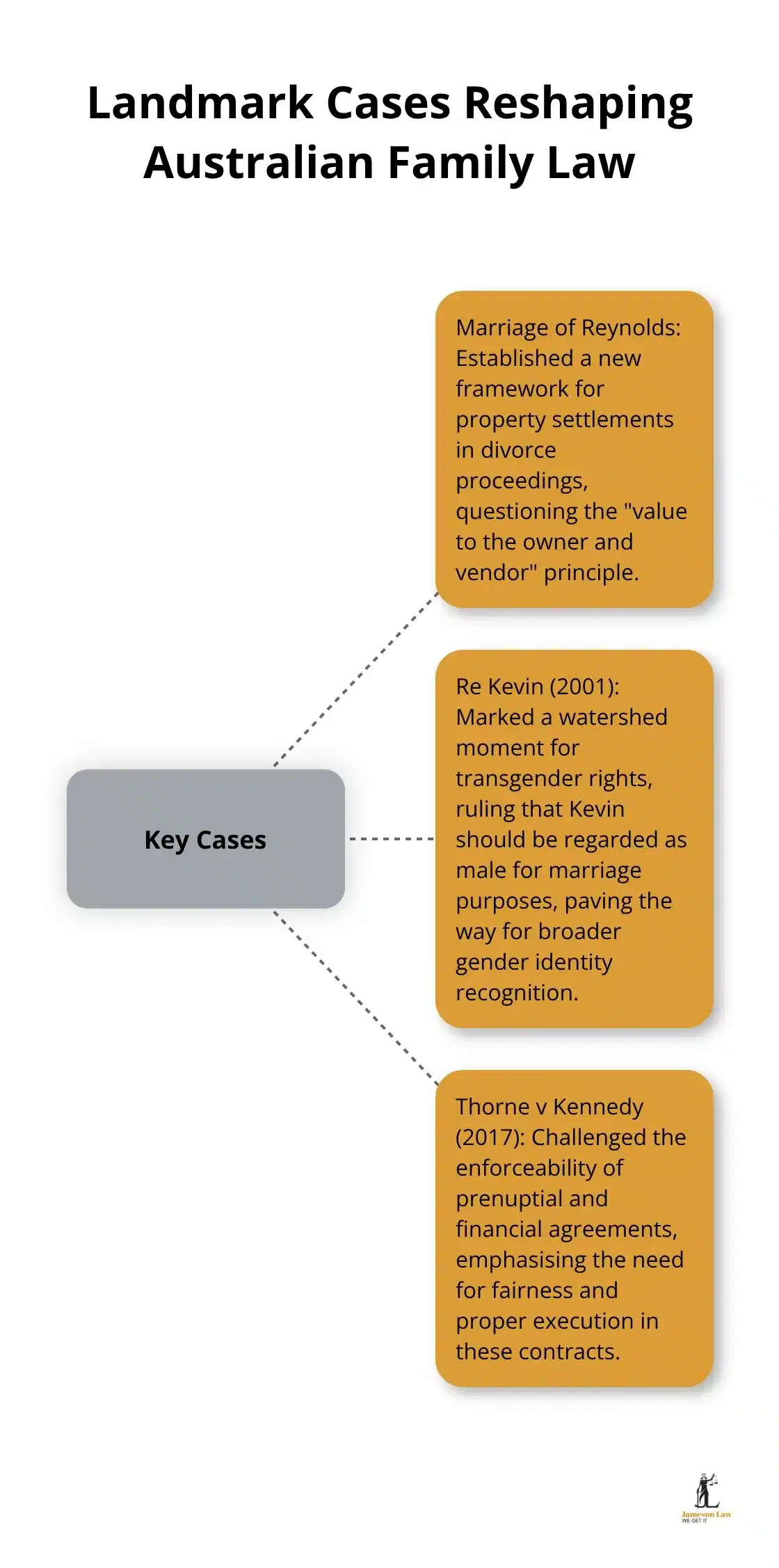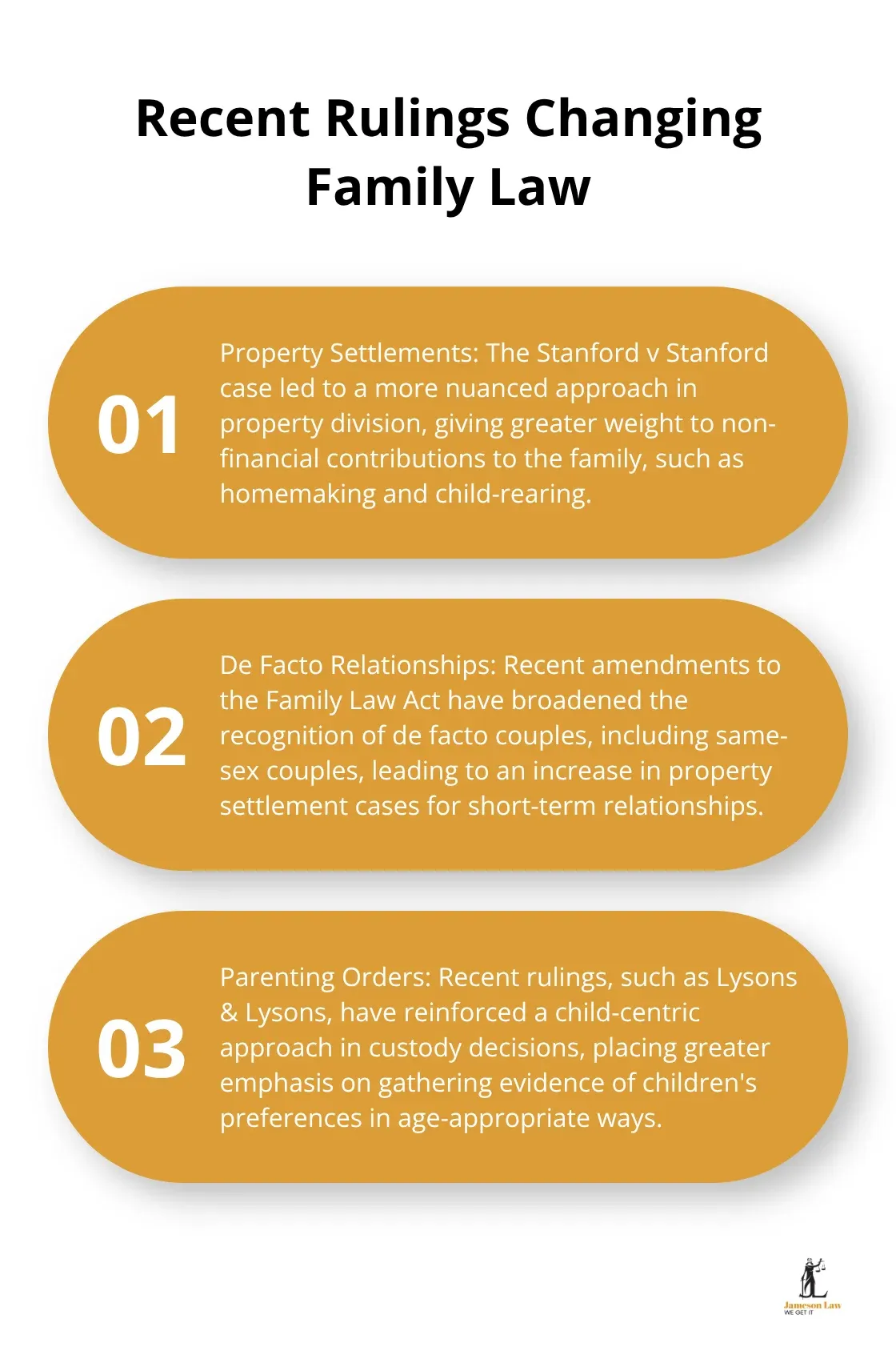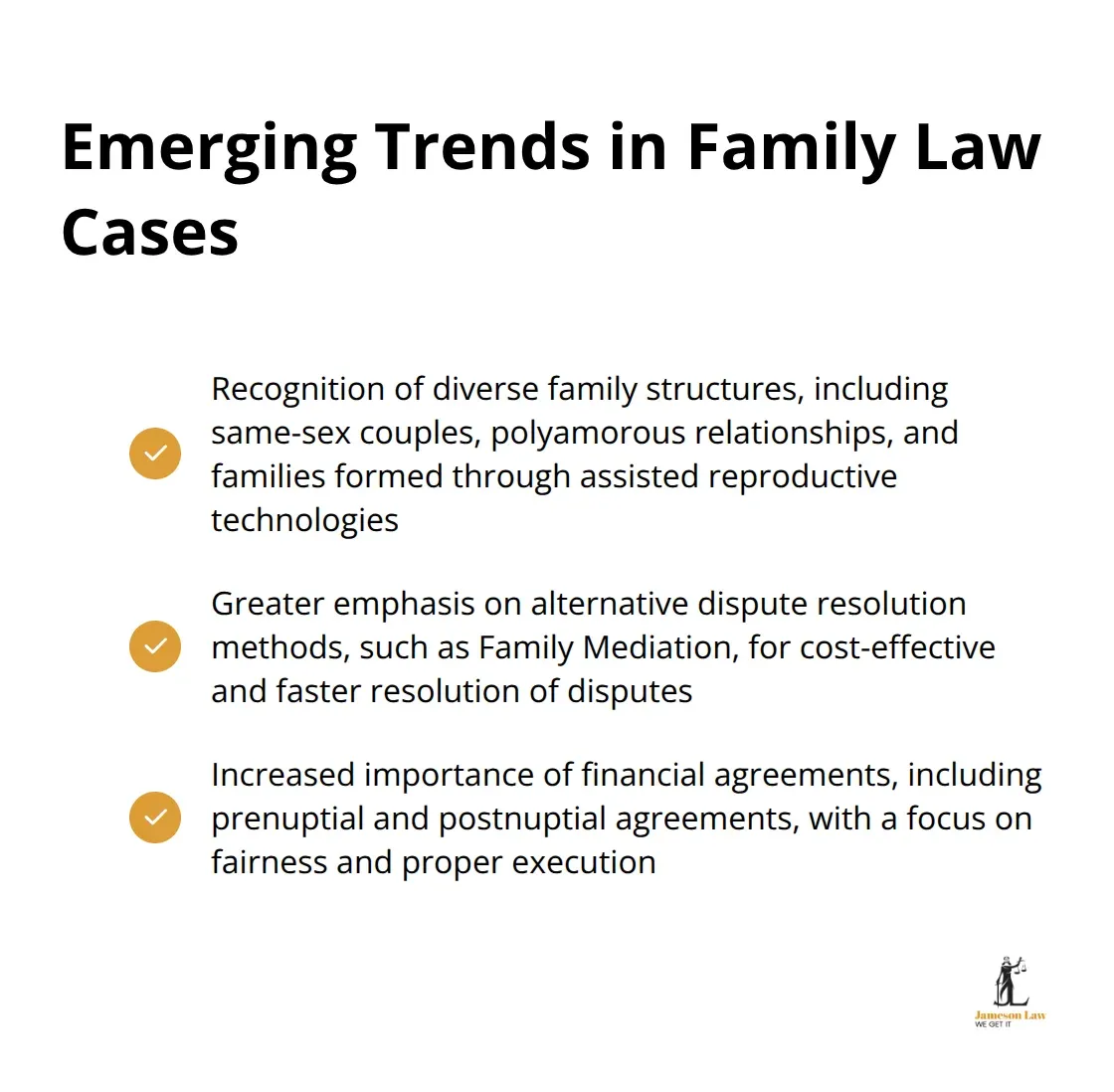Family law case law shapes the legal landscape for countless Australians. At Jameson Law, we have seen firsthand how landmark rulings can transform lives and redefine family dynamics across Sydney and NSW.
This post explores key Australian family law precedents, their impacts, and emerging trends that are reshaping the field.
Landmark Cases Reshaping Australian Family Law
Australian family law has evolved through several groundbreaking cases. These rulings redefined core concepts and set precedents that continue to guide practice today.
Marriage of Reynolds: A New Approach to Property Division
The Marriage of Reynolds decision queried the “value to the owner” principle in asset assessment and helped shape contemporary frameworks for property settlements. For practical guidance on property division in NSW, see our pages on property settlements and consent orders.
Re Kevin: Advancing Transgender Rights
The 2001 Re Kevin litigation marked a watershed for recognition of gender in marriage law. For background on statutory context, refer to the Family Law Act 1975 (Cth) and general case resources at AustLII. Our overview of key Family Law Act provisions explains how courts approach identity and status issues today.
Thorne v Kennedy: Challenging Prenuptial Agreements
The High Court’s decision in Thorne v Kennedy (2017) reshaped how courts scrutinise financial agreements. See the judgment collection via the High Court’s e-Resources (HCA) and our guides to financial agreements and binding financial agreements (BFAs).
Impact on Legal Practice
These precedents illustrate the dynamic nature of Australian family law. They continue to influence case strategy, evidence and negotiation. If you are navigating separation in NSW, explore Family Law 101 and speak with our Sydney family lawyers for tailored advice.

The evolving landscape does not stop there. Recent rulings continue to shape property division, de facto rights and parenting orders across Australia.
How Recent Rulings Are Changing Family Law
Recent appellate guidance has impacted property settlements, de facto relationships and parenting orders. These shifts affect how family law cases are run in Sydney and beyond.
Property Settlements: A New Approach to Fairness
Stanford v Stanford (2012) prompted a more nuanced approach to adjustment orders and the “just and equitable” requirement. See summary materials at HCA e-Resources and our practical explainer on property settlements in NSW. In practice, courts may place greater weight on non-financial contributions like homemaking and parenting.
De Facto Relationships: Expanding Definitions
Post-2009 Family Law Act amendments broadened de facto recognition for both heterosexual and same-sex couples. Check the statute at the Federal Register of Legislation and our guides to de facto relationships and de facto property settlements. Courts assess factors such as duration, mutual commitment, interdependence and public aspects of the relationship.
Parenting Orders: Prioritising Children’s Voices
Recent decisions emphasise child-centred evidence about best interests. For the current statutory pathway, see Part VII of the Family Law Act, the Federal Circuit and Family Court of Australia parenting resources, and our Sydney-focused guides to parenting orders and child custody.

Impact on Legal Strategies
Strategy now leans into better documentation of non-financial contributions, clear evidence of de facto interdependence, and child-focused materials. See our pages on mediation, family dispute resolution (FDR) and consent orders to resolve matters efficiently in NSW.
How Family Law Cases Are Evolving
Family law continues to reflect modern relationships and community values. Three trends are especially relevant across Sydney and NSW.
Recognition of Diverse Family Structures
Courts increasingly accommodate diverse family forms. In Masson v Parsons (2019), the High Court examined parentage where assisted reproduction was involved. See HCA resources at eresources.hcourt.gov.au and our plain-English guides to parenting orders. Families using assisted reproductive technology should consider formalising parenting roles through orders or agreements.
Alternative Dispute Resolution Takes Centre Stage
ADR is now central to Australian family law. Learn about FDR and mediation via the Attorney-General’s Department (AGD family law) and Family Relationships Online. We help clients reach durable agreements through mediation and negotiated consent orders.
Financial Agreements Gain Prominence
Financial agreements provide clarity but must be fair and properly executed. After Thorne v Kennedy, best practice includes independent legal advice, adequate time for consideration and full disclosure. See our NSW-specific resources on binding financial agreements.

Impact on Legal Strategies
As doctrine evolves, so must case strategy. Our Sydney team combines up-to-date authority with pragmatic resolution pathways. Explore Family Law 101, property settlements, parenting orders and financial agreements for practical next steps.
Final Thoughts
Family law case law in Australia continues to evolve, influencing property division, recognition of relationships and child-focused parenting outcomes. Understanding current precedents helps protect rights and informs better outcomes.
At Jameson Law, we stay current with High Court and appellate guidance to provide tailored advice across NSW. For help with property settlements, prenups and postnups, or parenting matters, call (02) 8806 0866 or book a consultation.













